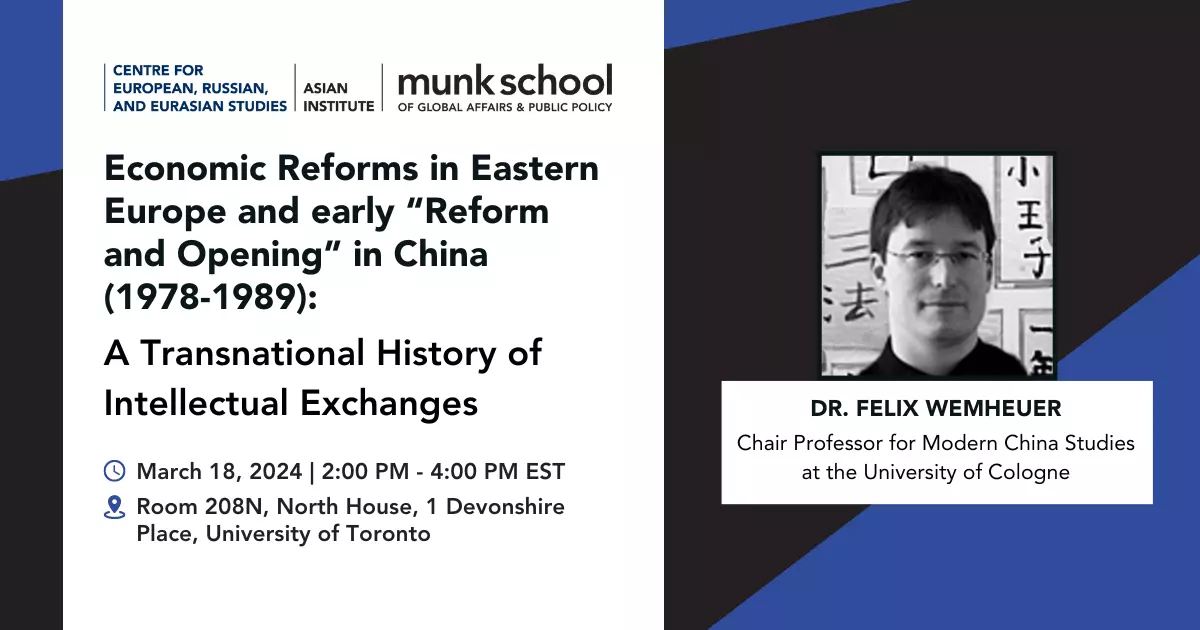
Economic Reforms in Eastern Europe and early “Reform and Opening” in China (1978-1989): A Transnational History of Intellectual Exchanges
March 18, 2024 | 2:00PM - 4:00PM
|
In-person
This event took place in-person at Room 208N, North House, 1 Devonshire Place, Toronto, ON, M5S 3K7
ABOUT THE EVENT
Following Mao Zedong's passing, Chinese policymakers and economists embarked on intense debates regarding the overhaul of the country’s centralized planned economy. Past experiments with decentralization and the rural household responsibility system were influential, yet Eastern Europe's economic reforms served as significant reference points, too. Notably, Chinese delegations were dispatched to Yugoslavia to scrutinize enterprise reform and to Hungary to grasp the intricacies of price liberalization. These visits aimed to dissect both the successes and failures of economic policies. Moreover, Eastern European economists were welcomed to China, engaging in discussions with party officials and leading economists, their insights transcending academic boundaries. Their works were also translated and disseminated widely in the public arena. With a focus on the transnational intellectual history through historical documents and academic journals, this talk probed why Eastern Europe's economic reforms failed to avert socialism's collapse, while China's "Reform and Opening" policies thrived.
ABOUT THE SPEAKERS
Felix Wemheuer is Chair Professor for Modern China Studies at the University of Cologne. His publications include Famine Politics in Maoist China and the Soviet Union (Yale UP 2014) and A Social History of Maoist China: Conflict and Change, 1949-1976 (Cambridge UP 2019).
(Moderator/Chair) Yiching Wu teaches East Asian Studies, modern Chinese history, and anthropology at the University of Toronto. An anthropologist trained at the University of Chicago, his research focuses on the history, society, and politics of Mao’s China, in particular during the Cultural Revolution. His main scholarly interests include historical anthropology, critical social theory, populism and social protest, modern Chinese history, Chinese socialism and post-socialism, and politics of historical knowledge.
Sponsor: Asian Institute, University of Toronto
Co-Sponsor: Centre for European, Russian, and Eurasian Studies, University of Toronto